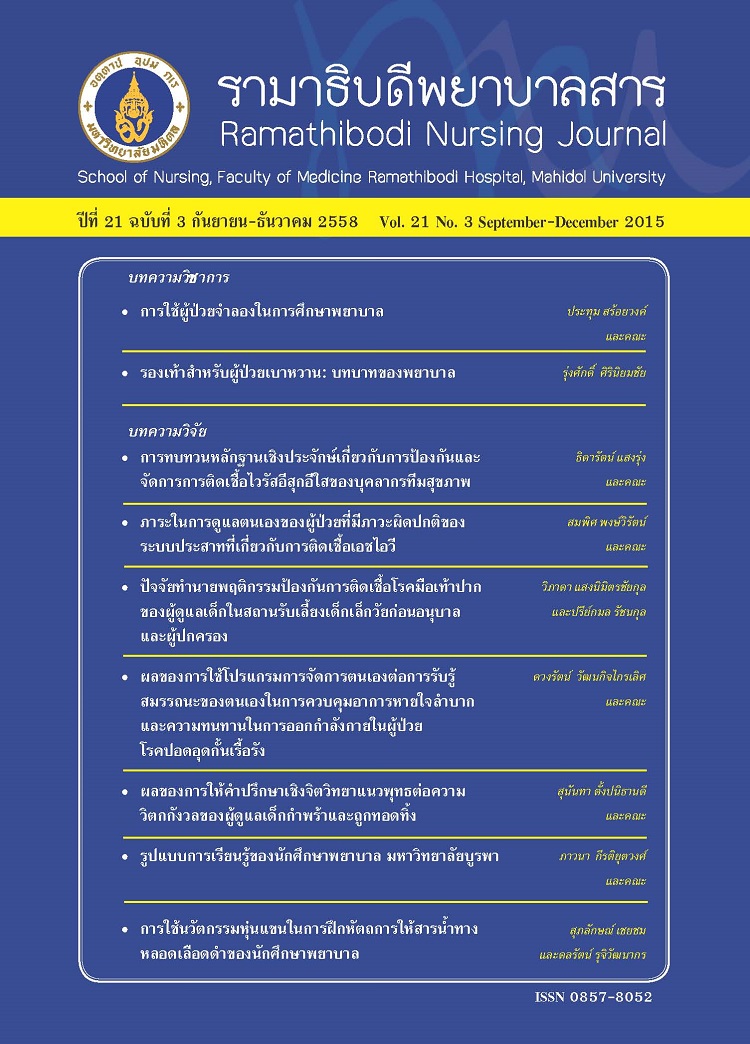Self-Care Burden in Patients with HIV-Associated Neurocognitive Disorders
Main Article Content
Abstract
Abstract: This descriptive study aimed to determine the prevalence of HIV-associatedneurocognitive disorders and to study self-care burden in patients with HIV-associatedneurocognitive disorders. Oberst’s self-care burden concept was used as the conceptualframework. The sample consisted of 177HIV-infected patients in an infectious disease clinic at a university hospital. Data were collected using questionnaire and interviews from October 2012 to April 2013 and were analyzed using of descriptive statistics. The study findings revealed that the prevalence of HIV-associated neurocognitive disorders patients was 12.40%. Most of the subjects (77.27%) had scores of self-care burden at a moderate level. When considering of self-care burden in each category, it was found that having regular exercises, managing living expenses, and seeking resources
in the community for healthy were the highest scores of self-care burden, respectively. The findings of this study regarding self-care burden in patients with HIV-associated neurocognitive disorders are useful for healthcare professionals to provide specific nursing care plans for patients with HIV-associated neurocognitive disorders in order to decrease self-care burden and promote well-being and quality of life.
Keywords: Self-care burden, HIV-associated neurocognitive disorders, HIV infection
Article Details
บทความ ข้อมูล เนื้อหา รูปภาพ ฯลฯ ที่ได้รับการตีพิมพ์ในรามาธิบดีพยาบาลสาร ถือเป็นลิขสิทธิ์ของวารสาร หากบุคคลหรือหน่วยงานใดต้องการนำทั้งหมดหรือส่วนหนึ่งส่วนใดไปเผยแพร่หรือเพื่อกระทำการใด ใด จะต้องได้รับอนุญาตเป็นลายลักษณ์อักษรจากรามาธิบดีพยาบาลสารก่อนเท่านั้น


